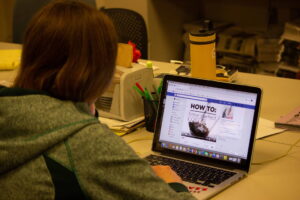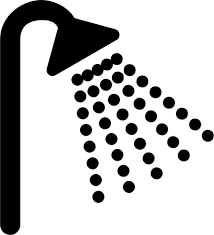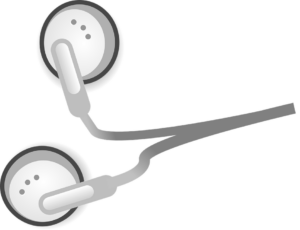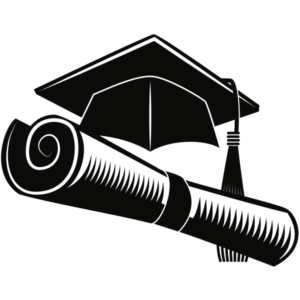Tag: Katie Belbusti ’22
Tangents & Tirades
by kwheele4 on April 15, 2021
Opinion
PC Should Offer Outdoor Workout Classes
As any fitness-minded Providence College student knows, it is increasingly difficult, if not impossible, to sign up for a gym time at the Concannon Fitness Center.
Because of COVID-19 guidelines and restrictions, there are only a limited number of spaces in the gym at any given time, creating an unfortunate situation for students who wish to work out and yet cannot register for a gym slot because of how quickly they fill up.
With that being said, if there’s one thing all Friars can agree on, it is that campus glows during springtime. The weather is warmer, the days get longer, and PC students will do anything to get time outside after the dreary winter months. With the shift to move events outside to remain COVID-friendly, Rec Sports should consider offering workout classes outdoors.
Not only would holding workout classes outdoors allow for more students to join, but it would also make it easier to abide by COVID-19 social distancing guidelines. Additionally, these classes would allow students to get some fresh air and take a well-deserved break from schoolwork and extracurricular commitments.
With the last few weeks of the semester coming to a close, and finals season approaching much sooner than we all would hope, outdoor workout classes could serve as the perfect stress reliever.
—Katie Belbusti ’22
Keeping the Keurig: Making Coffee at Home Is Superior
College students run on coffee like America runs on Dunkin’. With a Dunkin’, a Blessed Beans Cafe in Raymond Dining Hall, and a Starbucks in the Ruane Center for the Humanities all on campus, Providence College students have many different options to purchase coffee in the mornings or in between classes.
Even though these options are at one’s disposal, college students should not solely depend on these coffee chains.
In order to save money and also protect the environment, people should make their coffee at home. Some argue that buying coffee is superior because it tastes better than homemade coffee, but making coffee at home allows you to make sure it is to your liking.
“You can make it to your specific and personal taste because you decide what goes in your coffee. And if you taste it and decide, ‘Oh, this needs more cream or sugar, you can just add it!’” Alexa Katsaros ’22 said.
Making coffee at home also saves money. “My 21st birthday gift of choice was a Nespresso,” said Caroline Franks ’22. ”It’s the gift that keeps on giving. My New Year’s resolution this year was to stop spending money on coffee because it accrues over time.”
Additionally, instead of using environmentally unfriendly plastic cups, people at home can use mugs or glass cups in order to protect the environment.
While buying coffee once in a while from Dunkin’ or Starbucks is a fun treat, making coffee at home is the smart choice to make.
—Emily Ball ’22
The Great Vaccination Race: Why PC Students Must Patiently Wait Their Turns
by kwheele4 on March 18, 2021
Campus

The Great Vaccination Race: Why PC Students Must Patiently Wait Their Turns
by Katie Belbusti ’22
Opinion Staff
Almost a year after the outbreak of COVID-19 in the United States, the nation continues to work to stop the spread of the disease in a variety of ways—the most promising being the creation and distribution of the COVID-19 vaccine.
While distribution of the vaccine across all states starts with older populations and those most at risk for getting COVID-19, is it fair to place college students in a priority vaccine spot after those vulnerable populations are vaccinated?
In Rhode Island, healthcare workers, first responders, and all persons 65 years and older are currently eligible for the vaccine. However, in other states, communal living constitutes eligibility to receive the vaccine. The very environment of college and dorm-style living makes the spread of illnesses easier, especially the ultra-contagious COVID-19.
While Providence College has focused their efforts more on testing students and faculty as the premier way to determine the spread of the virus and contain it as quickly as possible, perhaps the Continuity Task Force should focus on what obtaining the vaccine would look like for PC.
Dr. Jessica Mulligan, an epidemiology professor at PC for almost 12 years, was willing to speak to The Cowl about the COVID-19 vaccine, including what it would entail for PC to try and vaccinate students. Mulligan is proud and grateful for the arrival of the COVID-19 vaccine, as well as the “potential that vaccines bring for helping us get back to some semblance of normalcy, or a ‘new normal.’”
When asked about vaccine distribution, Mulligan stressed, “It’s important to distribute the vaccines in a way that furthers the goals of health equity, especially because of the specific health disparities around COVID-19 impacting communities differently. COVID-19 has intensified and magnified health disparities, so it’s important that our prevention and treatment programs are based on principles of health equity.”
In short, it is best to focus on vaccinating those who still face a higher risk of getting COVID-19, rather than students. Surrounding communities in Rhode Island should have access to the vaccine before the students at Rhode Island colleges are prioritized.
In an ideal world, PC students would be able to get the vaccine through the College, but the nature of the situation requires us to wait our turn until all adults are eligible for the vaccine, which is now expected to be May 1, according to President Joseph Biden.
As the COVID-19 vaccine distribution continues, and the most high-risk and high-priority individuals receive the vaccine, Mulligan believes that determining who is eligible after that is the question most up for debate. Until more vaccines are distributed to those who are most in need and more vaccines become available, the best any PC student can do is recognize their own impact on stopping the spread of this virus.
As much hope as the COVID-19 vaccines have brought us, until the country reaches a point of herd immunity, it is essential that we continue to follow the protocols recommended by the CDC such as social distancing and mask wearing.
Luckily, PC has remained in close contact with the Rhode Island Department of Health to ensure that being in person at the College can be safe, and it seems to be working. Classes, dining, and now select outdoor sporting events can all be attended in person, and it is because of the Friar family’s commitment to keeping each other safe.
Tangents & Tirades
by The Cowl Editor on October 29, 2020
Opinion
Remote Friars Are Still a Part of the Friar Family
By Katie Belbusti ’22
Opinion Staff
This year’s midterm week is more stressful than previous years, and a contributing factor to that stress is COVID-19. With such a large number of Providence College students studying remotely this semester, it can be difficult to check in with students’ mental health during stressful times.
PC has done a lot during this Mental Health Awareness Month to create an open dialogue about mental health with the students on campus. On Oct. 19, a thousand pinwheels were placed on Slavin Lawn in remembrance of college-aged people who died by suicide. Events such as this help to eliminate the stigma around mental health, but how does this help PC students learning from home?
The College has been busy planning “The Great Friar Comeback” after the outbreak in September. Amidst the commotion, though, the College seems to have neglected checking in with students studying remotely. These are very difficult times for everyone, and especially during Mental Health Awareness Month, the administration needs to show its support to fellow Friars who are not on campus.
We must encourage the College to demonstrate the same levels of concern for remote students as they do for on-campus students. These are challenging times for everyone; therefore, students and administration must ensure that all students are given the same support.
PC Should Have Gone Paperless
By Madeline Morkin ’22
Opinion Staff
COVID-19 has fueled an unyielding number of questions regarding how to go about maintaining a regular education at Providence College. Post-quarantine, faculty and staff have had to consider these concerns that much more. Professors are social distancing, meeting students both through Zoom and in class, and spending countless hours attempting to avoid the virus while preserving beneficial instruction for their students.
While this may be true, one notable issue still stands strong amidst even the hardest of efforts: the continuous spread of physical paperwork to and from professors and their students.
In making the many necessary changes to campus and academic life at PC, the College should have considered going entirely paperless for the semester. By going paperless, professors could have become more adept at the online schooling and grading forced onto them by the pandemic.
In addition to increasing adaptability and fluidity in the new online, hybrid, and in-person classrooms, the avoidance of physical paper handouts or submissions could potentially lessen both the risk and exposure of COVID-19 for students and professors. While professors are struggling to adapt to grading online, the reality of a paperless PC may seem understandably undesirable. However, in trying times like these, any potential of decreasing exposure is worth a shot.
Remote Friars Are Still a Part of the Friar Family
By Erin Garvey ’22
Opinion Staff
Being on campus with friends, living in the dorms, and meeting new people in Raymond Dining Hall and Alumni Hall Food Court are highlights that every Providence College student looks forward to each academic year. However, this year, many of those highlights have been taken away or changed to ensure the safety of all students during the ongoing pandemic.
All students at PC have seen and experienced the struggle that followed the return of in-person classes this fall semester. Looking ahead: should students elect for a remote spring semester?
If students decide to learn remotely next semester, they will not be able to enjoy the privileges that come with living on campus. Ultimately, however, safety must be everyone’s top priority.
Not only do students need to think about their own safety, but they also must consider how their return to campus will impact the safety of professors, staff, and fellow students. When living on campus, there is a lot of opportunity to mingle and interact with fellow students, and this can have dangerous health implications during the pandemic.
Although it is a difficult choice, electing for remote instruction during the spring semester will enable students, faculty, and staff to have a safer experience, as it will allow for learning to occur with far less contact than it would on a college campus.
Surveillance Capitalism: How Companies Profit off of Your Digital Footprint
by Andrea Traietti on February 27, 2020
Opinion

by Katie Belbusti ’22
Opinion Staff
Surveillance capitalism is a term that has been increasingly used within the past decade. While it sounds like a complicated term, its definition is the collection of data through monitoring people’s behaviors on social media for the benefit of corporations to then tailor their advertisements to make more money.
Most of us are aware of the fact that our phones listen to us and keep tabs on what we are doing at any given time, but surveillance capitalism goes further: it exploits patterns on social media to create marketing strategies and advertisements to target consumers for economic profit.
As data surveillance programs continue to evolve in this manner, it is imperative that technology users are aware of their data footprint and their right to online privacy.
Dr. Matthew Guardino, a political science professor at Providence College, provided more insight on the role of surveillance capitalism in our lives. His general area of research is about media in politics, with a focus on how media corporations can shape the news. The topic of surveillance capitalism is one of great interest to Dr. Guardino, especially when connected with how it is increasingly affecting younger generations.
Regarding what is most important for millennials to know about surveillance capitalism, Dr. Guardino said, “It is very important to understand the outset, virtually anything any of us do online is recorded. It is recorded primarily, although not entirely, for corporations to make money. The vast majority of this kind of surveillance occurs without public knowledge and without us even having a sense that it is going on. It is important to understand that pretty much the entire internet runs on a financial basis: surveilling and then collecting people’s data.” When put into these simple terms, it is clear to see why this issue is becoming increasingly more concerning.
To convey the full extent of how companies such as Facebook use surveillance to monitor us, distinguished author Shoshana Zuboff recently wrote an article for the New York Times. Cited are a group of Facebook executives who claimed, “Facebook can work out when young people feel ‘stressed,’ ‘defeated,’ ‘overwhelmed,’ ‘anxious,’ ‘nervous,’ ‘stupid,’ ‘silly,’ ‘useless’ and a ‘failure.’”
Zuboff explains that this information “allows Facebook to pinpoint the time frame during which a young person needs a ‘confidence boost’ and is most vulnerable to a specific configuration of subliminal cues and triggers. The data is then used to match each emotional phase with appropriate ad messaging for the maximum probability of guaranteed sales.”
Technology has advanced to the point that companies can now learn our moods based on the things we look at on social media. To address the situation of this technology infringing more on our personal privacies, Dr. Guardino recommends a key piece of advice for technology-users: “The first thing, no matter what, is to become as informed as possible about the situation.
That includes taking some time to read up from credible sources on how this works and what actually happens to the data collected.” It is extremely important to be correctly informed about the situation, as it is something that affects all of us, with or without our prior knowledge of it.
In an attempt to produce change, Dr. Guardino states, “In the short-term, if what you find out worries you or concerns you, there are practical things that people can do to lessen their data footprint. On a longer-term basis to the extent that people are worried about the ethics and moral or social implications—of which there are many—the only way that I would argue long-term change is by getting politically involved, organizing and mobilizing to push for changes in public policy that will regulate how data is collected and what happens to it once collected.”
While the knowledge of this information seems daunting and overwhelming, it is essential to remember that we have a say in this matter. If we make an effort to learn more and collectively take a stand against corporations exploiting our privacy by taking political action, we can begin to get back to a more privacy-respecting world.
Tangents & Tirades
by Andrea Traietti on January 30, 2020
Tangents
The Shower Charade
For nearly everyone, the shower serves as a type of modern shrine. While monks meditate in the mountains, we students seek a similar Zen state of mind in our very own showers.
This comes as no surprise, though, because the shower is one of the only places where we can stare at a wall for 45 minutes and enjoy every second of it.
It is a shame that the place we hold so dear is under attack here at Providence College. The assailant takes on a nameless, faceless, and intangible description, and only submits to the laws of fluid dynamics. It is what allows us to brush our teeth and wash our hands, only to hurt us when we least expect it. It is the water pressure.
What was once a safe refuge in the bathroom has now been turned into a dangerous place where we all stand vulnerable to extreme water temperatures at any moment. With only the flush of a toilet, or a turn of the faucet handle, our peace of mind is scorched away in an acute stream of blistering water.
The shower charade is unfortunately known by many underclassmen who live in the dorms, and is in many ways an unavoidable aspect of college life. Red skin and boiling water aside, this unusual quirk of PC is only a fraction of the college experience, and in a very real way will make this experience that much more memorable.
—Joseph Kulesza ’22

Ray Improves Everything but Hours
Raymond Dining Hall has made many changes this semester, some of which include adding a full omelet bar, more stove tops at the U-Cook station, fruit smoothies in the mornings, and many more new features.
Although the quality of the food is improving, the one thing that they did not fix and should focus on improving is the inconvenient hours.
They advertise that breakfast is served daily until 11 a.m. from Monday to Friday, yet when students get out of their 9:30 a.m. class at 10:20 a.m. and rush to Ray for breakfast, most of the breakfast foods are being put away. They are left to pick between toast, bagels, and the lunch foods that are already being put out. If breakfast is open until 11 a.m., the breakfast foods should stay out until then.
Some may argue that students should wake up earlier and get breakfast before class, but this option may not be possible for students who stay up late studying.
Another aspect of the operating hours that Ray should amend is the closing times. From Monday to Thursday Ray is open until 9 p.m., on Friday and Saturday until 7 p.m., and on Sunday until 8 p.m. The variation in these hours is confusing, as students often mix up the timing and forget which day closes at which time.
Furthermore, Ray should stay open later than 7 p.m. on weekend nights, like other schools do, in order to offer late night meals and snacks. Although the dining hall offers “late night” breakfast or snacks during finals weeks, they should work to offer this feature more often.
All of the hard work put into improving the quality of the food at Raymond Dining Hall has produced satisfactory results. The next step in this improvement process must be the hours of operation as they are both inconvenient and confusing.
—Emily Ball ’22
Being a Respectful Netflix Viewer
Hernandez, Simpson, Bundy. While some of these names previously represented famous figures turned murderers, it seems that Netflix has changed their identities yet again—documentary series stars.
Netflix now has a number of major documentary series out about murder trials, all of which are extremely popular. Some of the major ones are The People vs. O.J. Simpson, Making a Murderer, and The Ted Bundy Tapes. Within the past month, two more series were added, including The Mind of Aaron Hernandez and Don’t F**k with Cats.
What all these series have in common is the entertainment value they produce. They tend to immerse their audience in the trial and give insight into the mind of the killers to better understand their motives. At the end of the day, these are series based off of someone else’s murder and should be treated as such.
While the intrigue inside the murderers’ minds can be all-consuming, it is important to remember what these shows are about, and that there is a respectful way to watch them and talk about them.
When you overhear people talking about the new binge-worthy series on Netflix, do not forget the show is about someone’s death, and respect should be paid to the victim. Rather than talking about these series as fictional shows, remember the victims and their families. For the families, these Netflix series serve as constant reminders of their loss, and we should all remember to be as respectful as possible when discussing these series.
—Katie Belbusti ’22

Tangents & Tirades
by The Cowl Editor on November 21, 2019
Tangents
Be Present During the Dash to Class
Walking to classes at Providence College is comprised of a set of unspoken rules. AirPods in, hoods up, and heads down. But if you take a moment to pause the music and listen to your surroundings, you’ll notice that it’s surprisingly quiet.
The lack of social interaction when we walk to class is somewhat concerning. It seems too quiet to say hello to your friends passing by, but also rude if you walk by in silence.
Some promote the idea of listening to music in between classes as a way to destress and focus on something else for the five to ten minutes that you have alone to yourself during school hours. Others use it as a means of avoiding social interaction if they are walking alone or don’t wish to look up from their phones.
We may all be a little guilty of taking the easy way out and putting earbuds in, but maybe try and be aware of your surroundings and all your peers passing by next time you walk to class.
If completed, one would notice all the little things that make campus so special. It could be the way sunlight shines through the leaves of the tress, or maybe, if you’re lucky, you’ll see the occasional dog and dog walker.
While it’s totally understandable to want time to destress while walking to class, use social interaction as a way to try and achieve that, rather than avoiding it all together.
—Katie Belbusti ’22

Choosing a Major: Quality Over Quantity
College has become overwhelmingly “degree-centric.” All too often undergraduate students perceive course selection as merely checking boxes off a list of major and minor requirements in order to achieve the maximum number of degrees.
Irrefutably, the fostering of competencies across numerous disciplines proves intellectually and empathetically enriching whenever a student can harness a genuine interest in their major or minor course material. However, as our contemporary society has grown increasingly achievement-oriented, students experience a sense of social obligation, rather than an intrinsic motivation to acquire excessive academic degrees. Overall, this phenomenon has devalued the educational opportunity of earning an undergraduate degree.
Given the rigor of the core curriculum, many Providence College students in particular who pursue additional degrees with their major, begin to perceive each semester’s course load as merely another set of obstacles standing between themselves and their undergraduate diploma.
To that end, it proves critical that we revive educational morale within the PC community by encouraging each other, both institutionally and on an individual basis as students, to exclusively attain majors and minors of both importance and interest to us.
Such curricular selectivity will provide us with the versatility within our schedule to pursue academic curiosities through electives courses and invest the preponderance of our energies in developing a passion for our majors—thus reinforcing the invaluable enrichment opportunity that is the undergraduate experience.
—Alyssa Cohen ’21

Music is for More than Your Ears
by The Cowl Editor on November 14, 2019
Opinion

by Katie Belbusti ’22
Opinion Staff
Music is a big part of everyone’s life. On any day during the week, it seems that music can be heard blasting through the walls of Providence College dorms. It plays at its loudest when you want to sleep, and is non-existent when you are most in the mood to dance. Music plays a big role in each of our lives, especially as students.
Whether you have earbuds in walking between classes, while doing homework, or at the gym, the music we listen to is our own form of self-expression and says a lot about us as people. This is why we should all stay true to our own individual tastes in music, and not conform by only listening to whatever three songs are popuar at a given time.
Weekend after weekend, the same songs are played, and everyone seems to be content with that. But it is a good thing to stand out from the crowd, and for those who appreciate a wide variety of music genres, they should be unafraid to share them.
Music is more than just something to listen to to pass the time or fill the quietness. Rather, it is something to listen to in order to reflect your mood or maybe even put you in a better one. In this way, music is a form of self-expression, and a way we can form our own individual identities.
Cole Dougherty ’22 is not only extremely interested in listening to music, but he also creates his own music that he puts on SoundCloud. Dougherty explains how artists try to create lyrics that people can relate to: “Whatever mood the chords I compose suggest is the mood in which I write my lyrics in. I then take out my G2 pen and my moleskine notebook—writing on pen and paper is the easiest way to convey what I’m feeling for the song. Sometimes my lyrics are about things in real life, but I always try to write things that people will be able to feel.”
For those who are more into mainstream music and prefer listening to only pop music, it may not be for the reasons you believe. Grace Riley ’22 speaks on the topic of music and listening to pop music, saying, “Music can completely change my mood. I like listening to what’s ‘in’ because you can learn more about an artist that way and can relate to them. Artists have the ability to describe everything you’re thinking and feeling, even though you’ve never met them before. They can put into words what you’re feeling.”
Listening to pop music does not always have to be for the same reasons that everyone else listens to that genre—after all, it is called popular music for a reason.
The concern comes with the lack of exposure that pop music creates, specifically for the teens and young adults of our society. There is so much music that people do not get exposed to because they never put in the effort to listen to anything else besides pop music.
Embrace the true meaning of music and how listening to music can benefit your life in more than the ways to which you may be accustomed. Let it help your mood and give you something to relate to, but more than that, do not be afraid of having a music taste different from everyone else.
Tangents & Tirades
by The Cowl Editor on September 26, 2019
Opinion
The Death of Cursive Writing
Cursive writing is a dying art.
Formerly a widely practiced technique, cursive writing was designed to teach elementary school children how to write formally. Students often learn the basic alphabet first, and work their way towards being able to write full essays in this aesthetically pleasing font.
One of the more applicable aspects of learning cursive writing is the ability to cultivate a legible and professional signature, something that people often build upon once they learn the basics of the style. Unfortunately, with cursive becoming less and less common in elementary schools, children do not always know how to craft a classic signature.
It is not uncommon to accredit this unfortunate extinction of handwriting to a rise in technology. Whether through writing essays, letters, or even taking notes, the art of proper handwriting has become less necessary through the years.
To kill cursive is to take away from the individuality and creativity that accompanies this particular practice. Each student becomes accustomed to their own particular style and thus crafts a special signature unique to their hand.
With computers, students are not given those same opportunities. And, as small as this may seem, computers hinder them from being as creative and hands-on as they have the potential to be.
To keep cursive from dying we must encourage students to take time away from the screen and give them the ability to refine and personalize their writing style in whatever way they choose. This personal touch makes the learning process much more entertaining and longer-lasting.
—Julia McCoy ’22
AQ: A Commendable Second Choice
Every upperclassman knows the feeling of relief—and panic—once their housing decisions are made for sophomore year, since this is the first year that one has more freedom to choose about where to live. Of course, most people’s first choice is Suites Hall. But there are a lot more positives to living in Aquinas Hall than one might realize.
Aquinas is considered a traditional dorm style building, as residents have one to two roommates and a shared bathroom with the floor. This living style is something that people take for granted. Passing other people on your floor, saying “hi,” and making small talk all helps with making friends and is probably the biggest part missing from living in Suites or apartments.
Kenneth Fullerton ’22 said he felt rather lucky getting Aquinas because he knew a lot of people on his floor already. Fullerton says, “being able to walk outside of my room and see people that I already know and am friends with is probably the biggest plus.”
Fullerton said the lack of a kitchen and private bathroom was the biggest downfall in AQ: “I can’t really say too many negative things about living in Aquinas. I’m in a triple so I have a good amount of space, but I think the one thing I would really want that Suites has is my own bathroom and kitchen.”
While not getting Suites at the end of freshman year can be disappointing, just know that it is not as bad as you might think. Of course, the luxury of having your own bathroom and kitchen is indeed very nice, but there are still many positives to living in Aquinas. If sharing a floor with all of your friends or knowing you can make new ones by walking down the hall is not enough, just remember that you do not have to walk up the steps outside of Guzman and Accinno to get pretty much anywhere on campus.
—Katie Belbusti ’22
Attend On-Campus Events
Bingo, bubble soccer, Black and White Ball—all of these events are put on at Providence College for students to enjoy.
With such a wide variety of events and activities, students are sure to find something that interests them. PC students should take advantage of events on campus because they encourage a sense of community among the students and take away from the daily stressors of academics.
By offering events that all students can attend, PC fosters a sense of community. School dances like Black and White Ball allow all students from all grades to join together for a night of dancing and socializing.
“Going to events builds community, even if it’s just stopping by, because you never know what you might get out of that experience and who you might meet,” Kevin Rockwal ’22 said.
Additionally, PC offers events that promote stress relief; Providence College Board of Programmers is offering a Late Night HIIT & Flow this coming weekend in order to encourage exercise as an effective stress reliever. Another popular activity at PC is late-night bingo on Thursdays, which allows students to hang out with their friends and forget the daily stresses of schoolwork.
“Bingo is such a great way to unwind on a Thursday night after a long week and hang out with friends that are ‘regulars,’” Kate Donohue ‘22 said. “Plus, the free food and prizes make it a no-brainer!”
PC feels like home because of fun events and activities that distract students from all the hard work college necessitates. Next time you see a poster for a PC or BOP event you are interested in, gather a group of friends and stop by!
—Emily Ball ’22
